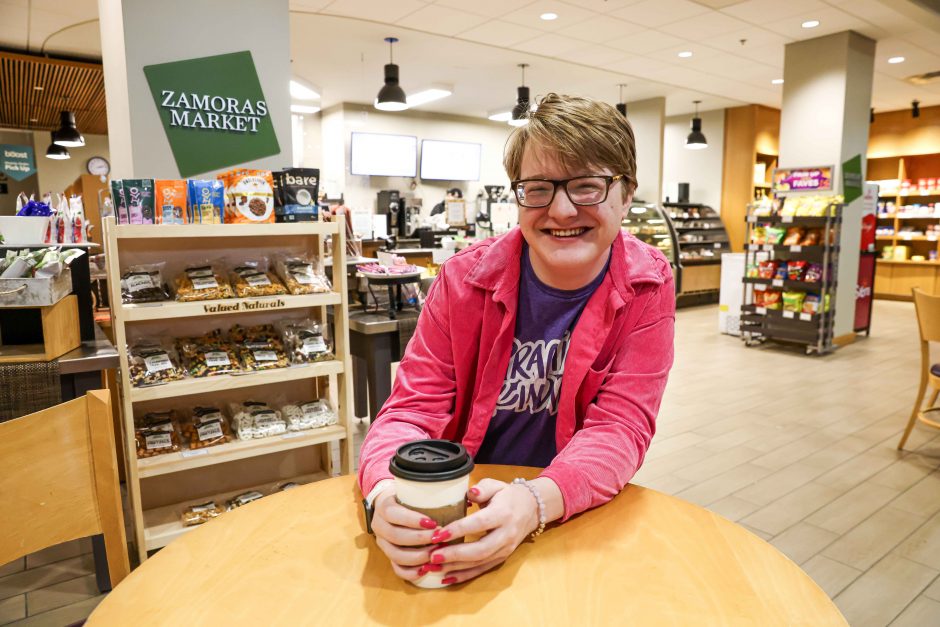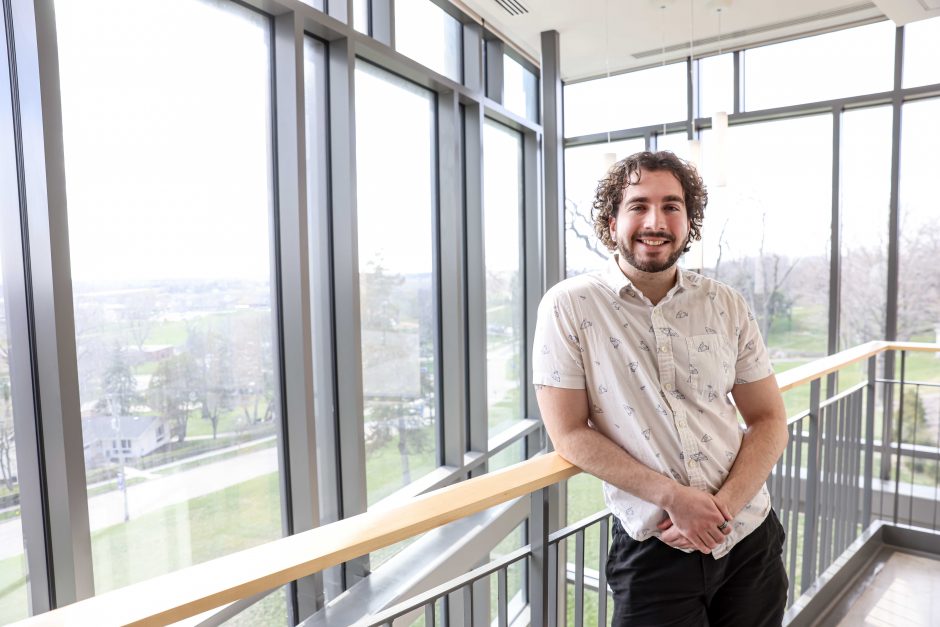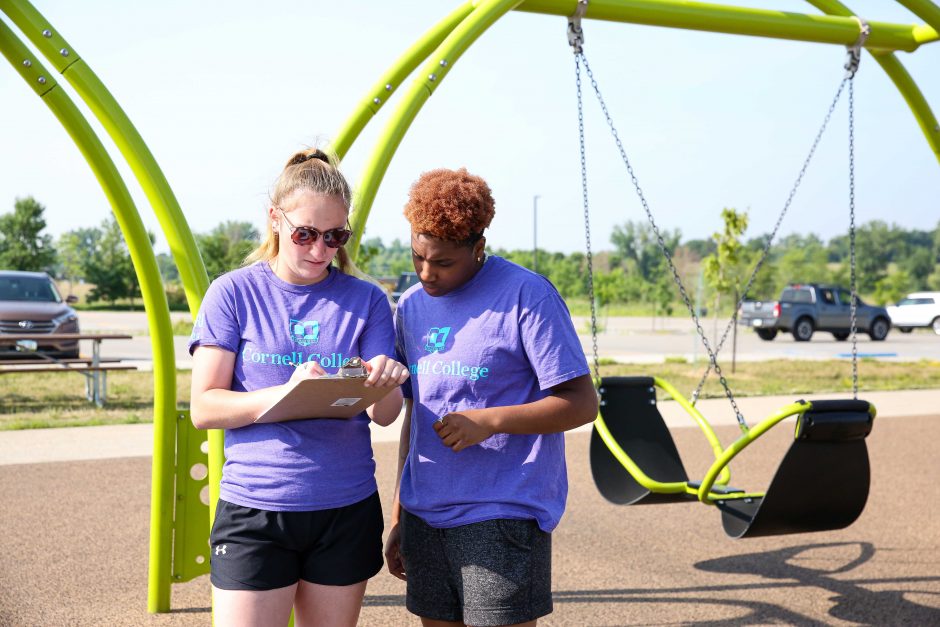Mental Health Matters
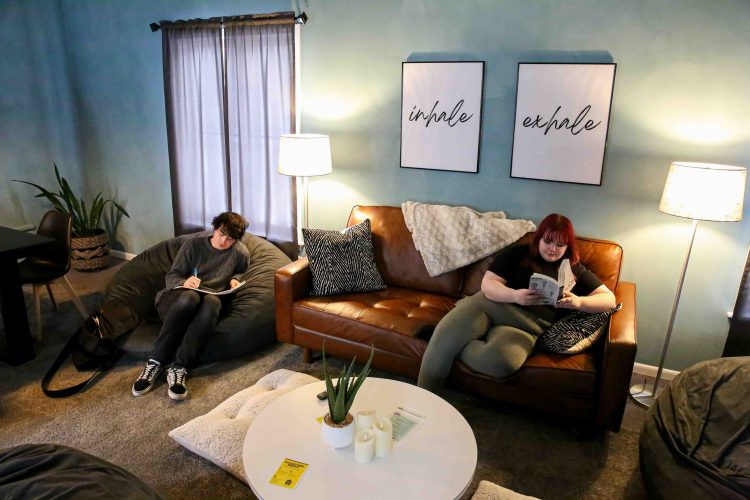
What does Cornell College do to support the mental health and wellbeing of our students?
Each faculty and staff member at Cornell is here for our students. We care about them and we can at a small school where everybody seems to know everybody. “Responding to student wants and needs” is at the top of our strategic plan priority list.
Following the data:
We’ve seen the data, and we’re responding. The National College Health Assessment Survey conducted on campus shows that Cornell is very similar to what we’re seeing at other colleges and universities and this data informs our programming initiatives.
“Students are overwhelmed, and suffering with anxiety, loneliness, procrastination, and sleep deprivation. We were already seeing an increase in students with mental health diagnoses but that has increased post-COVID.” – Marcia Sisk, Health Promotions Director
Counseling:
- Cornell has three full-time counselors who can provide unlimited, free sessions.
Wellness fairs:
- Programming that connects students with resources on and off campus. Cornell partners with local professionals so students learn there are resources they can access.
Programming:
- Cornell holds alcohol, tobacco, and other drug awareness events, as well as sleep events annually. Students can also participate in programs that provide education around healthy relationships and consent, safer sex, and authenticity. Plus, the Residence Life Office has launched Together Tuesday with staff members hosting social programs, which provide education and networking opportunities to students.
Physical fitness:
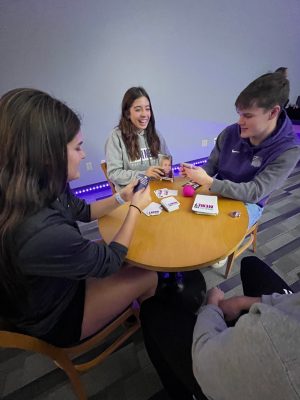
- Our Small Athletic and Wellness Center is our hub for physical fitness on campus, and all students are encouraged to visit to exercise in their free time. We also offer martial arts for fitness classes, Zumba classes, and Yoga classes. Plus, we have weekly Intramural programming via a partnership with athletics.
Special spaces:
- Cornell has developed a Mind Spa Sensory Room in the Library for the student body, particularly neurodiverse students to use as a space for grounding/centering. Students can also hang out in The Living Room, a dedicated cozy space in the Ebersole Health and Wellbeing Center, and they can also spend time in the Relax & Recover room in the SAW.
Transportation:
- We offer free transportation to students seeking medical/mental health care off campus in the Cedar Rapids and Iowa City areas.
Digital services:
- We continue to provide telepsychiatry services to students as a gap service for psychiatric medication management.
Student Success Center:
- Cornell has an office staffed with a team dedicated to supporting students with disability accommodations, academic advising, navigating the college’s administration, life success strategies, and more.
Our programs focus on:
Mindfulness
- Mindfulness is a very effective way to manage mental and emotional well-being. We encourage our students to practice mindfulness by participating in paint and sip events, aromatherapy satchels DIY events, pet therapy, adult coloring, and journaling.
Resilience
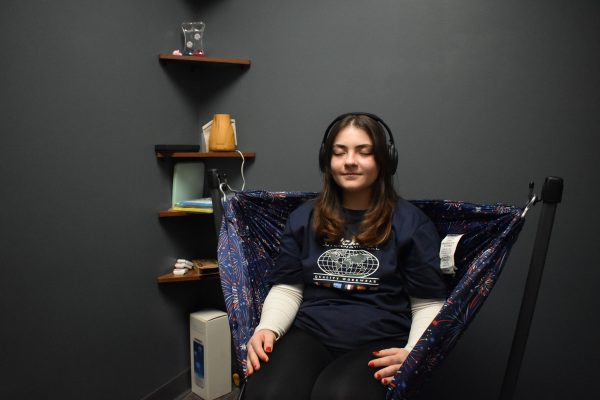
- Gratitude/gratefulness activities, random acts of kindness activities, and authenticity are also areas of focus.
Belonging and inclusion
- Cornell held its first-ever Coming Out Day event on Oct. 11.

